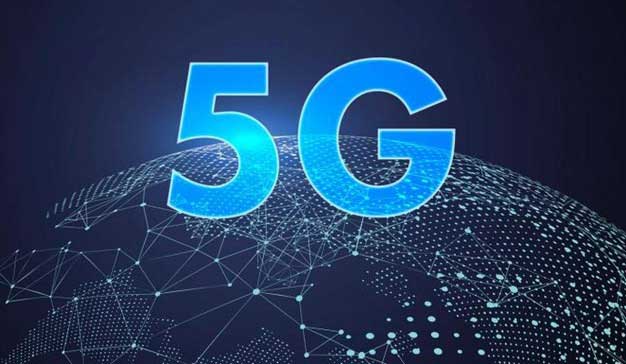
7 Reasons Why 5G Technology Will Revolutionize the Way We Live and Work
The fifth generation of wireless technology, or 5G, is set to revolutionize the way we live and work. With lightning-fast speeds and low latency, 5G promises to transform industries ranging from healthcare to transportation. In this article, we'll explore the benefits and advantages of 5G technology, as well as its impact on different industries and sectors.
What is 5G Technology and How Does It Work?
5G technology is the next generation of wireless network technology. It promises to offer significantly faster speeds and lower latency than its predecessor, 4G. 5G networks operate on higher frequency bands, which allow for greater data capacity and faster speeds. This technology relies on small cells, which are placed closer together than traditional cell towers, to provide more consistent coverage.
What Are the Benefits and Advantages of 5G Technology?
There are several key benefits and advantages of 5G technology. Here are just a few:
- Faster speeds: 5G technology can deliver speeds up to 100 times faster than 4G, with some estimates suggesting speeds of up to 10 Gbps.
- Lower latency: 5G networks promise to reduce latency to as little as 1 millisecond, making them ideal for real-time applications like gaming and virtual reality.
- Greater capacity: 5G networks have a greater data capacity than 4G, meaning they can handle more devices and data-intensive applications.
- Improved battery life: 5G technology can help improve battery life on devices by reducing the amount of energy required to transfer data.
- Enhanced security: 5G networks offer improved security features, making them less vulnerable to cyberattacks.
- Better coverage: 5G networks use small cells to provide more consistent coverage, even in areas with a high density of devices.
- Reduced network congestion: 5G technology can reduce network congestion by prioritizing data traffic and enabling more devices to connect simultaneously.
How Will 5G Technology Impact Different Industries and Sectors?
- Healthcare Industry: 5G technology has the potential to transform the healthcare industry. With its high speeds and low latency, it can enable remote surgeries and telemedicine, allowing patients to receive care from anywhere in the world. This technology can also help doctors monitor patients remotely and provide real-time feedback.
- Transportation Sector: 5G technology can enable autonomous vehicles to communicate with each other and with infrastructure, improving safety and efficiency. This technology can also improve traffic flow and reduce congestion on roads.
- Gaming Industry: The gaming industry is poised to benefit from 5G technology, with faster network speeds enabling more immersive, multiplayer experiences. This technology can also enable cloud gaming, allowing players to stream games without the need for expensive hardware.
- Internet of Things (IoT) Ecosystem: The Internet of Things (IoT) ecosystem relies on fast and reliable connectivity to function. 5G technology can provide the necessary speeds and capacity to support a growing number of IoT devices, from smart homes to industrial applications.
What Are the Improvements in Network Speed and Latency with 5G?
5G technology promises to deliver significantly faster speeds and lower latency than 4G. According to a report by Ericsson, the number of 5G subscriptions is set to reach 3.5 billion by 2026. A study by the World Economic Forum found that 5G technology could create up to $13.2 trillion in economic value by 2035.
How Will 5G Technology Improve the Internet of Things (IoT) Ecosystem?
The Internet of Things (IoT) ecosystem relies on fast and reliable connectivity to function. 5G technology can provide a significant boost in both these areas. With its faster network speeds and lower latency, 5G can support more devices and enable real-time data transfer, making it a key enabler of the IoT ecosystem.
In addition to supporting more devices, 5G technology can also improve the overall efficiency and productivity of IoT devices. For example, smart cities can use 5G networks to connect traffic lights and other infrastructure, allowing for real-time traffic monitoring and optimization. Similarly, industrial IoT applications can benefit from 5G's low latency and high bandwidth, enabling real-time data analysis and predictive maintenance.
However, the widespread adoption of 5G technology also presents some potential challenges and drawbacks. One of the primary concerns is the cost associated with upgrading existing infrastructure to support 5G networks. Another concern is the potential for security vulnerabilities, as the increased connectivity provided by 5G networks may make it easier for hackers to access sensitive information.
Despite these challenges, the potential benefits of 5G technology are undeniable. From faster network speeds to improved healthcare and transportation, 5G is set to revolutionize the way we live and work. As Ericsson's report predicts, "the 5G revolution is here, and it will change everything."
Real-world examples of 5G technology in action:
- In the healthcare industry, 5G technology has already been used to enable remote surgeries and telemedicine. In China, doctors used 5G technology to perform a remote surgery on a patient located over 1,800 miles away, demonstrating the potential for 5G to revolutionize the way medical care is delivered.
- In the transportation sector, 5G technology is already being used to support connected cars and autonomous vehicles. For example, Audi has partnered with Ericsson to develop 5G technology that enables cars to communicate with each other and with infrastructure, improving safety and efficiency on the road.
- In the gaming industry, 5G technology is poised to enable more immersive and responsive gaming experiences. Companies like Google and Microsoft are already exploring the potential for cloud gaming powered by 5G networks, allowing gamers to play high-quality games on any device with low latency and high bandwidth.
Final Thought
In conclusion, 5G technology is set to revolutionize the way we live and work, with benefits ranging from faster network speeds to improved healthcare and transportation. As businesses and consumers alike begin to adopt 5G technology, it will be interesting to see how it transforms our daily lives and unlocks new opportunities for innovation and growth.
Technology




